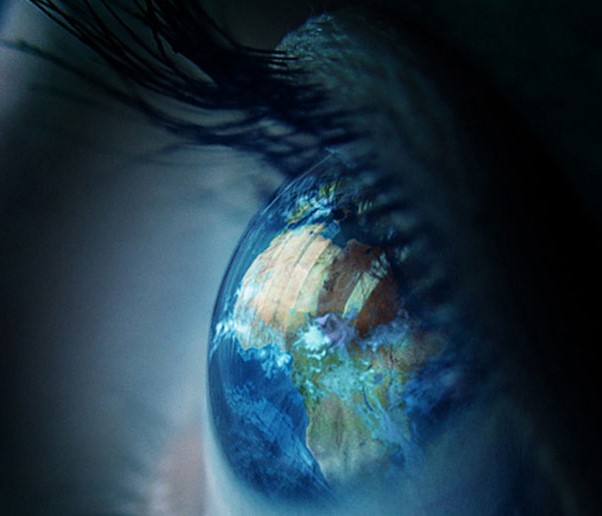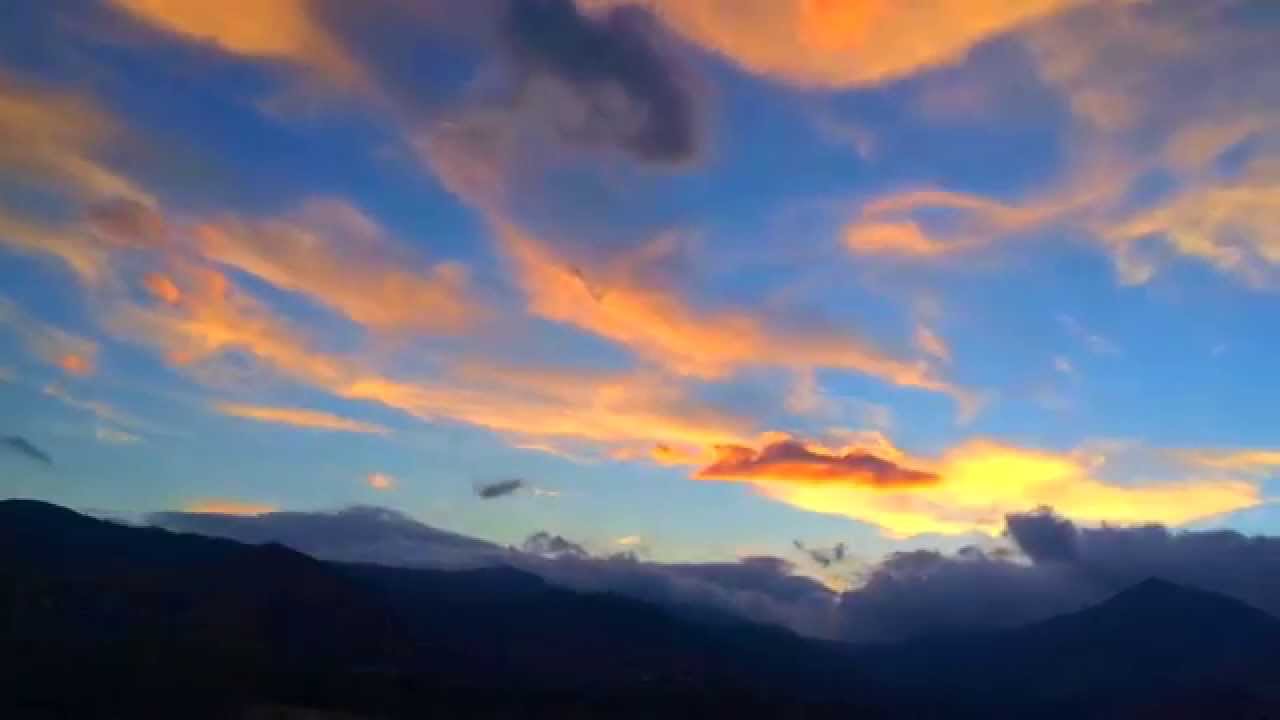A welcome series of storms is drenching the valleys and snowpacking the High Sierras in California, bringing crucial relief from a four-year drought. So if you want to get outdoors, you have to seize the breaks between the rains. This isn’t Washington, where they take endlessly gray, rainy days as a given.
 Despite the supersaturation, I pedal out to the edge of town for a meditation an hour before sunset. The smaller of the two creeks, which dries up for half the year even in a normal year, is running high and strong. The sky to the east and south is full of gray clouds, but the sun has broken through and shines brightly in the lower quadrant to the west, and sheds surprising warmth.
Despite the supersaturation, I pedal out to the edge of town for a meditation an hour before sunset. The smaller of the two creeks, which dries up for half the year even in a normal year, is running high and strong. The sky to the east and south is full of gray clouds, but the sun has broken through and shines brightly in the lower quadrant to the west, and sheds surprising warmth.
The stream is a restless, ceaseless, surging animal at my feet. Though no longer brown from stirring up the sediment, it isn’t clear either, but opaque, like the previous days and the human condition in general.
Passionately observing the debris and detritus of experience is what orders the mind and cleanses the heart. No action of the self, of the ‘me’ can do so. One is put in order and cleansed by bathing in beauty, stillness and emptiness. For that immersion to happen, the mind-as-thought has to effortlessly, spontaneously fall silent.
There’s been so much stuff happening personally and collectively lately that even I’m skeptical of the efficacy of passive awareness at the beginning of the first sitting by the creek in a week. Just then two kite falcons appear, the first unobtrusively soaring by in front, the second landing like a dove in the branches of the dying sycamore above my head.
Since that’s only happened once before, I take note. They are slender-winged raptors, which flutter in place over the fields searching for prey, and parachute more than plummet to the ground when they spot something. Their call, which I’ve rarely heard, sounds like a pipsqueaking parody of the fierce, piercing screech of the woodland hawks in the parkland.
Bad experiences and deep doubts of recent days give way to direct perception, feeling, reverence and gratitude for the beauty surrounding me. The sun is faintly warm all the way down to the horizon, and it’s warm enough after sunset to keep sitting there, insulated from the dampness by plastic and pads. By the time I leave, I have to turn on the headlight of the bike.
Only observing the movement of thought and emotion without the observer can end fear and darkness within. Passive watchfulness gathers undivided attention, which alone acts, without effort or direction, to dispel darkness.
By the watch it took nearly an hour for the shift to occur today and end the separate observer/self. Then there is only what is, watched without the watcher as sensations, thoughts and emotions arise in the body, mind and heart.
In the intensity of effortless attention and perception, memories and associations dissolve, at least for a few precious, timeless minutes, bringing peace to the heart and clarity to the mind.
As I leave I ask that everyone, who isn’t presently acting out of darkness when they drop down to the creek from the paved bike path 50 meters above, feel something here and gain some benefit.
There’s a lot of talk these days about the ‘shift,’ and how it is underway. Baloney. That’s wishful thinking and self-deception. Something may be happening in a small minority of people, but those who say a psychological revolution has begun are fooling themselves and others. There’s still much work to do, beginning and ending within.
Can the tables be turned on the terrorists and the sensationalistic, voyeuristic media that go hand in hand in serving the darkness in human consciousness?
One mainstream media columnist, thinking with puddle depth about the present worldwide climate of fear, offers this treacly prescription: “A pluralist life in diverse worlds with diverse people weaves together into one humane, multifaceted existence.”
Earlier in the same hackneyed piece, this ‘thought leader’ set himself up by saying, “we can’t repeat 1990’s bromides about free choice and the natural harmony among peoples.” Right, then he puts forth the same old bromides about the natural harmony among pluralists.
Intellectually knowing why one is afraid, without having a liberating insight into fear, is worse than not knowing at all. One has to observe fear within oneself, remain with it, watching without the watcher as it unfolds and tells its full story.
Then there is insight beyond words into the choking tendrils and malignant roots of fear, and the insight, which is light itself, dispels the darkness and hate. Only insight can save us, and humanity.
Martin LeFevre

